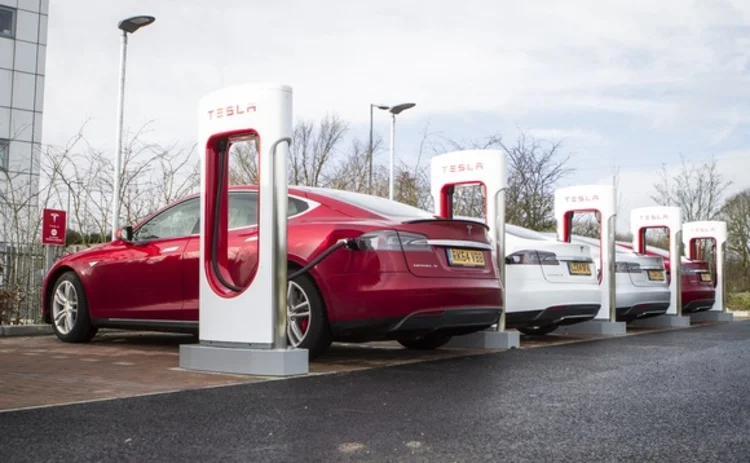
This article was paid for by a contributing third party.

Blog: How ready is the motor insurance supply chain for the electric future?


The latest data from the Society of Motor Manufacturers and Traders has shown a 105% increase, year-on-year, in new electric vehicle sales.
Admittedly the actual numbers are still very small, but there is no question that the tide is starting to turn, undoubtedly encouraged by the Department for Transport’s ‘Road to Zero’ strategy which sets out the ambition for at least 50% of new car sales to be ultra-low emission by 2030.
The government is taking steps to enable the massive roll-out of infrastructure to support the electric vehicle revolution – cited to be the biggest technology advancement to hit UK roads since the invention of the combustion engine. The question is how the insurance sector is preparing itself for this change – and how its supply chain is also future-proofing itself to support the new world of electric motoring.
Currently there is an expectation that premiums for electric vehicle insurance are higher than for conventional fuel vehicles. This is attributed to the higher purchase price of these vehicles and the more specialist costs of replacement parts or repairs.
However, as the technology evolves it is anticipated that the playing field will level out and motor insurers will fully embrace alternative fuelled technologies. Ensuring that their supply chain is effectively geared up for this change is, therefore, vital.
Of course, the motor manufacturers are investing considerable resources in gearing up their networks to provide the right skills and support for electric vehicle maintenance and repair. But it’s essential that the wider after-sales community is equally well equipped to handle these high voltage vehicles. Motor insurers will want to know that their repair supply chain is not only properly qualified but sufficiently comprehensive to support the wider electric vehicle take-up.
The Institute of the Motor Industry, which represents the retail motor sector, has been lobbying for the introduction of regulation for vehicle technicians working with electrically-propelled vehicles for some time.
Following a poll of IMI members, where 98% called for regulation of technicians, the IMI has been leading the efforts to secure minimum training standards for technicians working at different levels on electric and hybrid vehicles, from basic maintenance to full diagnostic and repair. It believes that there is a real imperative for accepted sector-wide EV Professional Standards before the UK marketplace moves from early-adopters to the majority of consumers embracing EV’s in the 2020’s.
The other challenge is vehicle replacement supply for policyholders where their electric and hybrid vehicles are undergoing repairs after an accident.
While a driver using an electric vehicle may currently be happy to accept a petrol vehicle while their car is off the road, the changing dynamics of the motoring landscape will mean that this becomes less appealing to the customer – and could potentially even have a detrimental impact on insurer brand loyalty in the long-term. Indeed, there is already an acknowledgement that the early adopters of electric motoring don’t want to compromise on their motoring experience if their vehicle is off the road. They have made the cultural change and want that their chosen suppliers – from the garage to the insurer – to respect that.
Insurers should now, therefore, be asking some key questions of their supply chain. In particular what are the short to medium-term plans in respect of hybrid and electric vehicle availability. If there’s a small niche fleet, how easily accessible is this across the country. And what are the capabilities of the repair network to ensure that vehicles are dealt with as efficiently as possible.
The accessibility of charging points at rental locations is also an important consideration for insurers that want to fully embrace this new motoring technology, and, therefore, support their policyholders effectively at their time of need. And as alternative fuel vehicles start to become more widely used on UK roads, insurers are likely to expect their supply chain partners to also fully embrace this new technology for their core infrastructure. For example, a vehicle replacement provider that uses electric vehicles for their delivery and collection service, provides an insurer with an important extension of their own ultra-low emission brand values.
The motoring environment is changing and insurers have numerous challenges to prepare for. And their supply chain needs to be part of that process.
Sponsored content
Copyright Infopro Digital Limited. All rights reserved.
As outlined in our terms and conditions, https://www.infopro-digital.com/terms-and-conditions/subscriptions/ (point 2.4), printing is limited to a single copy.
If you would like to purchase additional rights please email info@postonline.co.uk
Copyright Infopro Digital Limited. All rights reserved.
You may share this content using our article tools. As outlined in our terms and conditions, https://www.infopro-digital.com/terms-and-conditions/subscriptions/ (clause 2.4), an Authorised User may only make one copy of the materials for their own personal use. You must also comply with the restrictions in clause 2.5.
If you would like to purchase additional rights please email info@postonline.co.uk
